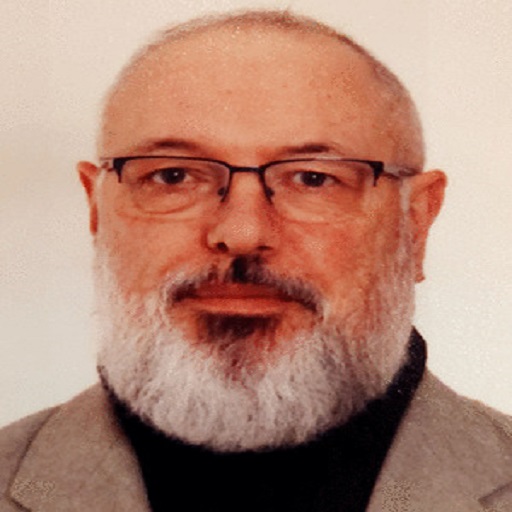Prof. Armando Walter Colombo (IEEE Fellow)

Prof. Armando Walter Colombo (IEEE Fellow)
Institute for Industrial Informatics, Automation and Robotics (i2AR) University of Applied Sciences Emden/Leer, Germany
Title: AI-supported Automation of Systems-of-Cyber-Physical-Systems.
Abstract: We are witnessing rapid changes in the industrial environment, mainly driven by business and societal needs towards production customization and the digitalization of the economy, i.e., digitalization and interconnection of products, services, enterprises, and people. This trend is supported by new disruptive advances in the cross-fertilization of concepts and the amalgamation of information-, communication-, control- and mechatronics technology-driven approaches in traditional industrial systems. In this context, industrial informatics combine the progress achieved by the application of large distributed and networked computing systems on product and production system design, planning, engineering, and operation with the power of digital data that are produced by industrial processes, collected by the Internet of Things, processed by Human/(Natural-) and Human-created (Artificial-) Intelligence (AI).
Cyber-Physical Systems (CPS) involve a high degree of complexity at numerous spatial and temporal scales, and highly networked communications integrating their computational and physical components. As such CPS refer to Information-Communication-Control-Automation-Mechatronics-Systems (sensing, actuating, computing, communicating, executing, deciding, etc.) embedded in physical objects, interconnected through several networks including the Internet, and providing citizens and businesses with a wide range of innovative applications, including “AI-supported automation engineering” based on knowledge contained in digitalized data, information, services.
Ontologically the term Cyber-Physical Systems means hardware-software systems which tightly couple the physical world and the digitalized (virtual) world. In a CPS ecosystem, on the one hand every real physical object has one or more cyber representations, and on the other hand a cyber component or system can be linked to a physical representation i.e., an object in the 3-dimensional human-tangible world. Moreover, these objects are increasingly interconnected in real-operational-time, networked either permanently or communicate in an asynchronous manner from time to time, making the whole infrastructure evolvable and influencing the creation of emergent behaviors, possessing all essential characteristics of real-time-critical systems-of-systems.
Current implemented Industry 4.0-compliant digitalized systems-of-systems built their structure and their functions based on CPS. They forge the core of real-world networked industrial infrastructures having a cyber-representation through digitalization of data and information across the enterprise, along the product and process engineering life cycle and from suppliers to customers along the supply chain following the value-stream. As such the competitive performance of a System-of-ICPS mainly depends on the ability to effectively collect, analyze and use large-scale digitalized data and information, in real-time, from many different and often heterogeneous sources, to sustainably and efficiently manage, supervise and operate in the industrial environments. This effective information- and knowledge-driven interaction of ICPS with other CPS and enterprise systems, extending to all business processes, is viewed as vital to modern industries, supporting the real implementation of e.g. a Circular Economy.
In this context, the Keynote (i) addresses the penetration and proliferation of Industry 4.0-compliant and AI-supported ecosystems into the industrial environments under the perspective of a Circular Economy framework, taking into account that the same trend is also evident in other domains such as energy, healthcare, manufacturing, military, transportation, consumer, enterprise, robotics, and smart cities, among others; and (ii) offers an overview of major requirements for supporting the Engineering of Artificial Intelligence (AI)-based automation of processes and of the Systems-of-Cyber-Physical-Systems behind, showing examples of ongoing innovation projects and deployed solutions.
BIO: Prof. Armando Walter Colombo (IEEE Fellow) joined the Department of Electrotechnical and Industrial Informatics at the University of Applied Sciences Emden-Leer, Germany, became Full Professor in August 2010 and Director of the Institute for Industrial Informatics, Automation and Robotics (I2AR) in 2012. He worked from 2001 until 2018 as Manager for Collaborative Innovation Projects and also as Edison Level 2 Group Senior Expert at Schneider Electric, Industrial Business Unit. His research interests are in the fields of industrial cyber-physical systems, industrial digitalization and system-of-systems engineering, Internet-of-Services, Industry 4.0-compliant solutions. Prof. Colombo has over 30 industrial patents and more than 300 per-review publications
(see https://scholar.google.fi/citations?user=FgFDTMEAAAAJ&hl=en). He has extensive experience in managing multi-cultural research teams in multi-regional projects and has participated in leading positions in many international research and innovation projects. With his contributions, he has performed scientific and technical seminal contributions that are nowadays being used as one of the bases of what is recognized as “The 4th Industrial Revolution”: networked collaborative smart cyber-physical systems that are penetrating the daily life, producing visible societal changes and impacting all levels of the society. He is currently Co-Editor-in-Chief of the Open Access Journal of the IES (OJIES), Distinguished Lecturer of the IEEE Systems Council, member of the IEEE IES Administrative Committee (AdCom), and member of the IEEE IES and TEMS Fellow Committees. Prof. Colombo is working as expert of the EU REA, CHIPS JU and EUREKA Programs. He is listed in Who’s Who in the World /Engineering 99-00/01 and in Outstanding People of the XX Century (Bibliographic Centre Cambridge, UK).